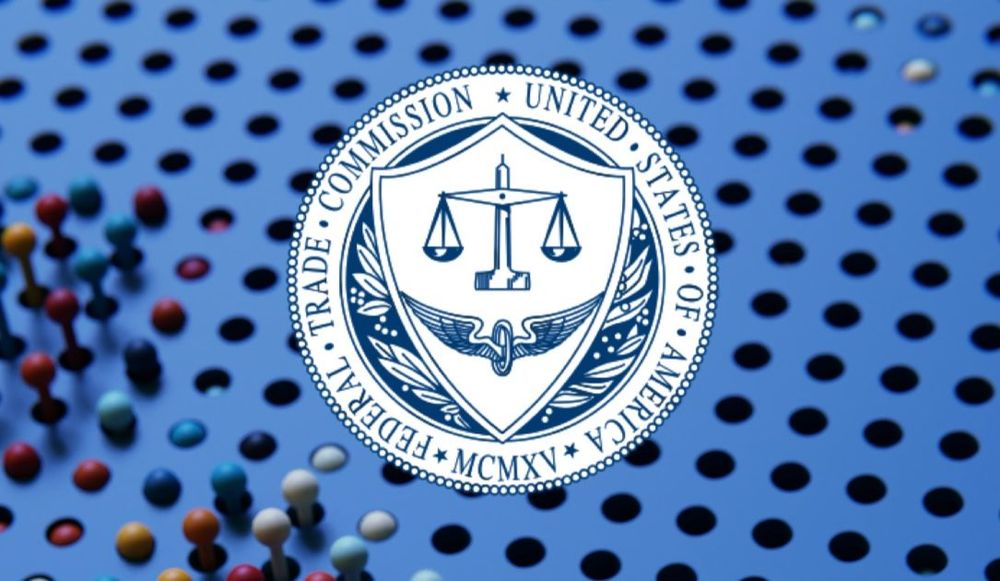FTC chair implores Congress to strengthen children’s online privacy protection law
Federal Trade Commission (FTC) Chair Andrew Ferguson on Wednesday said that under his tenure the agency will “aggressively” enforce a newly formalized and tougher rule designed to protect children’s privacy online and, notably, called on Congress to strengthen relevant federal laws.
While hailing the enhanced power the FTC’s newly revised Children’s Online Privacy Protection Rule (COPPA) will give the agency to crack down on websites and online service providers which violate kids’ privacy, Ferguson said Congress needs to do more by updating its own version of COPPA. Without action from Congress, the FTC is limited in its ability to further bolster its rule.
An effort to make such an update to COPPA died in Congress last session but was reintroduced in March.
Focusing on the nearly 30-year-old law’s failure to require operators to obtain parental consent to collect, use and share children’s personal data in all cases, Ferguson called on Congress to update federal law to strike an exception allowing websites and service providers to avoid obtaining parental consent unless they have “actual knowledge” that a user is under age 13 or operate a website designed for children.
Ferguson said that as a result of that language, the FTC has long operated under the assumption that most online services can simply determine a user’s age by asking for a date of birth. That standard is no longer adequate, he said.
“Everyone in this room knows that this method of age verification provides little to no barrier of access for children under the age of 13 to online services,” Ferguson said. “And because it provides little to no barrier of access, the law does not advance the principle of parental consent that Congress had in mind.”
Ferguson’s remarks were made at a special FTC workshop on “how big tech firms exploit children” and is just one of many recent signals that the agency will place an emphasis on protecting children’s online privacy.
Ferguson has previously underscored his focus on the issue in recent congressional testimony.
Ferguson’s comments raise a charged issue by suggesting online operators require more controversial means of verifying users’ ages. Recent political debate about those methods have included ID checks or the use of facial recognition age estimation technologies.
Children’s online safety advocates, including lawmakers, have long pushed for a more aggressive age verification model, but civil liberties groups have worried that bolstering age verification systems to require such documentation violates the privacy of children and potentially everyone on the web.
Still, Ferguson said there are actions the FTC can take without congressional involvement. The newly-revised COPPA Rule, for example, will give the agency new power to crack down on websites and online service providers' treatment of parental consent.
From now on, Ferguson said, “when an app or site wants to send a child’s personal information to Big Tech, or to a service provider in China, parents will have the right to say no.”
Ferguson also said parents should be empowered to erase their children’s data on platforms, “at all levels of granularity, from individual messages to entire accounts.”
“Presently, our laws give far more power to Silicon Valley than it does to parents to determine what online content will be accessible to our nation’s children,” he said. “We can and should do better.”
Speaking on a panel following Ferguson’s speech, FTC Chief Technology Officer Jake Denton underscored the vast amount of data that is in the public sphere as a result of companies’ gathering, storing and selling of kids’ information.
“Ten hours a day on a device — that’s so much data,” across a childhood, Denton said. “We have no idea what inferences have been made [by advertisers] — we can’t peer behind that box.”
Speculating that data collected simply based on children’s scrolling habits could impact them later in life even in areas as seemingly irrelevant as receiving auto insurance, Denton shared that based on his own experiences as a teenager constantly saturated in social media, it is hard for children to step back and escape from the pull of platforms “taking over every aspect of their lives.”
Suzanne Smalley
is a reporter covering digital privacy, surveillance technologies and cybersecurity policy for The Record. She was previously a cybersecurity reporter at CyberScoop. Earlier in her career Suzanne covered the Boston Police Department for the Boston Globe and two presidential campaign cycles for Newsweek. She lives in Washington with her husband and three children.



